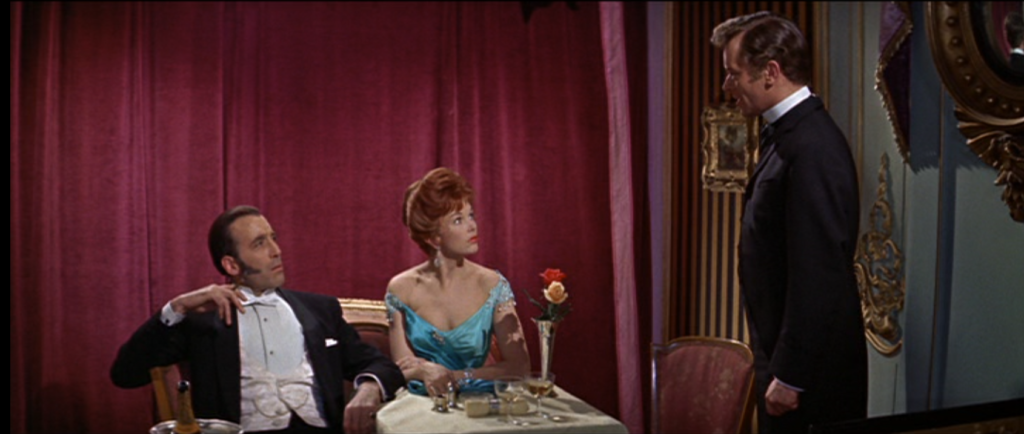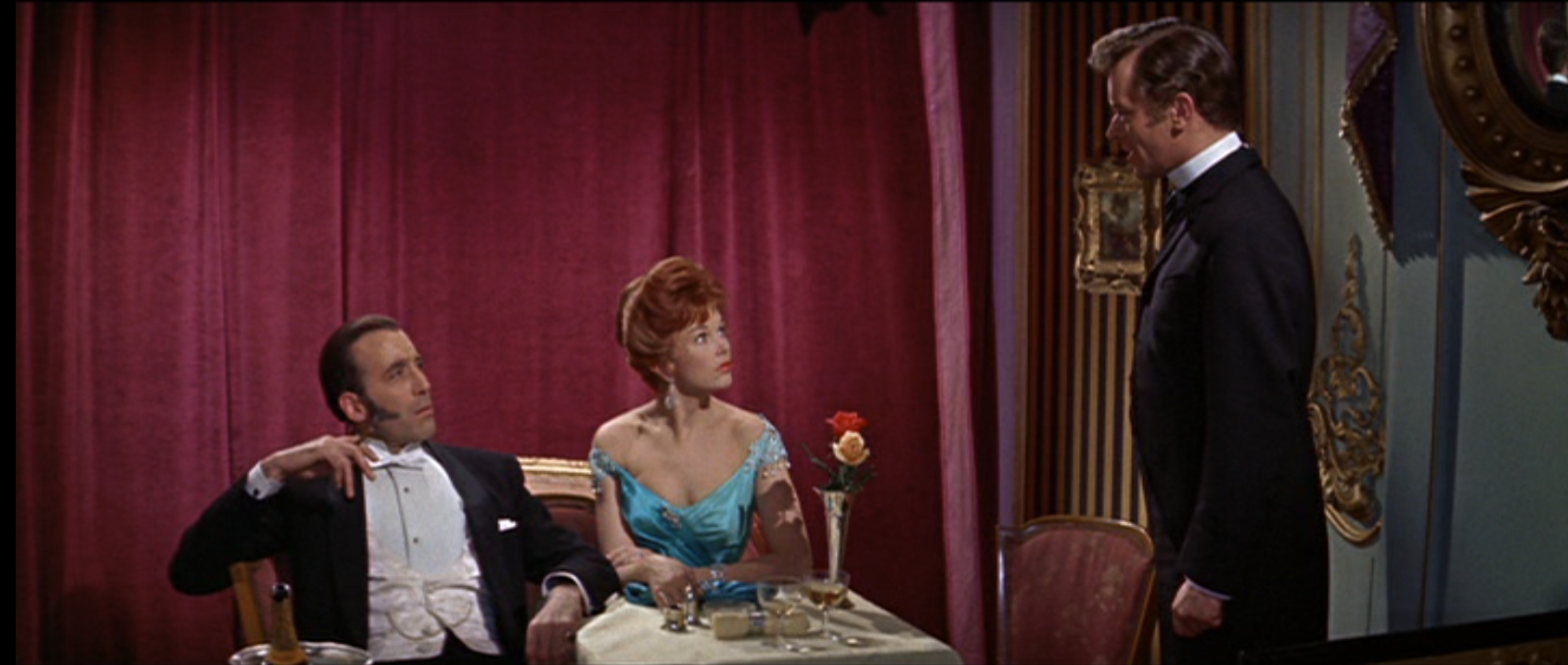Movie Review: The Two Faces of Dr. Jekyll (1960) directed by Terence Fisher
Six years ago, Dr. Henry Jekyll (Paul Massie) was laughed out of the scientific community for his wild theories about the dual nature of human consciousness. Since then, he’s been a recluse spending the majority of his time on his experiments with lab animals, and neglecting his lovely wife Kitty Jekyll (Dawn Addams). He has only two regular visitors, Dr. Ernst Lithauer (David Kossoff), the only scientist that didn’t write him off, but worries about his health, and Paul Allen (Christopher Lee), a wastrel and gambler who befriended Jekyll at school, and hits him up for money whenever the cards go bad. (Good thing Dr. Jekyll has an independent income and doesn’t need to work for a living!) Kitty frequently badmouths Paul to her husband, but is secretly having an affair with him.

As you might have expected from knowing this story already, Dr. Jekyll invents a formula that alters his personality, turning him into the “limitless” Mr. Edward Hyde. On his first night out on the town, Hyde happens to run into Kitty and Paul, and charms his way into being their new best friend. Shortly thereafter, Hyde also takes an interest in exotic dancer Maria (Norma Marla) and starts courting her. But he has two problems. The first is that the formula keeps wearing off, returning him to the dull and weak Jekyll. The second is that the world isn’t ready for a man who’s truly without limit, who is completely “free.”
This movie was the second of three times Hammer Studios adapted the classic Robert Louis Stevenson story, The Strange Case of Dr. Jekyll and Mr. Hyde. The first is relatively obscure comedy The Ugly Duckling (1959) and the third was the even more lurid Dr. Jekyll & Sister Hyde (1971). As it was already much-adapted and has become part of the background knowledge of our culture, much of the interest is in how the changes are rung.
This Doctor Jekyll dismisses the notions of “good” and “evil”, instead talking of “man as he could be”, the part of our nature that aspires to improvement and higher behavior, and “man as he would be”, freed of internal constraints and free to act on any impulse. He must confront and understand the “would be” man, he says, in order to create the “could be” man. Henry is a hirsute introvert, speaking in a husky voice and laser-focused on his research. Edward is a clean-shaven extrovert, brimming with self-confidence and superficially charming, but easily distracted by his latest whim.
Hyde is amused by the fact that Paul and Kitty don’t realize who he is, and thinks that first enabling Paul’s bad habits and then using them to extort the man into “giving” him Kitty is a hilarious joke, having an affair with his own wife! And while he’s a monster morally, this Hyde isn’t especially powerful, getting himself drunk and mugged because he’s not experienced in the ways of the underworld.
Kitty is unfortunately the old cliche of the “anti-science wife.” She has zero interest in or understanding of her husband’s research. That research takes up ninety percent of his time, and they’re childless, so Mrs. Jekyll feels stifled and bored. She spends a lot of her time keeping up with social engagements that Henry can’t be bothered with, which gives her plenty of cover to go dancing and…other things with Paul. She does recognize that while Paul is a lot more fun than Henry, he’s not exactly a good provider. And while she’s charmed by Edward, she has enough on her plate.
Paul is not a good person, in fact he’s a rotter, but he, unlike Hyde, has limits. He might sucker-punch a man, but won’t keep pounding on him once he’s down, but Hyde will. He’s okay with taking Dr. Jekyll’s money and diddling his wife, but only as long as Kitty is okay with this. He enjoys taking Edward around to the fleshpots of the city when that man is funding his debts, but it turns out he’s pretty conventional in his own vices, and balks once he learns Hyde’s full price. Christopher Lee is of course a delight in the role.
Alicia is a proud young woman who trusts her constrictor snake more than men, and deservedly so. She’s in an occupation that leaves her very vulnerable to the law and her clients, so she has to understand her own worth and keep up her defenses. She falls hard for the supremely confident and virile Hyde, which leads to tragedy.
Content: Murder, suicide, bareknuckle boxing, assault. Marital infidelity, extramarital sex (off camera), prostitution, sexual assault. Partial nudity, lots of women’s outfits that are way too skimpy for 1874, exotic dancing. One extended dance number is basically just women flashing their undies over and over like they were in a shounen ecchi anime. Alcohol and opium abuse. Ophidiophobes should be aware there are several snake scenes. Ophidiophiles will be delighted to know the snake does not die. Gendered slurs. Older teens should be okay, maybe don’t show this one to preteens. The “Icons of Horror” DVD has the full movie, other versions have minor cuts for content.
Overall: A less-seen but still good version of the Jekyll and Hyde story. Most recommended to Christopher Lee fans, but horror fans in general should enjoy this.

